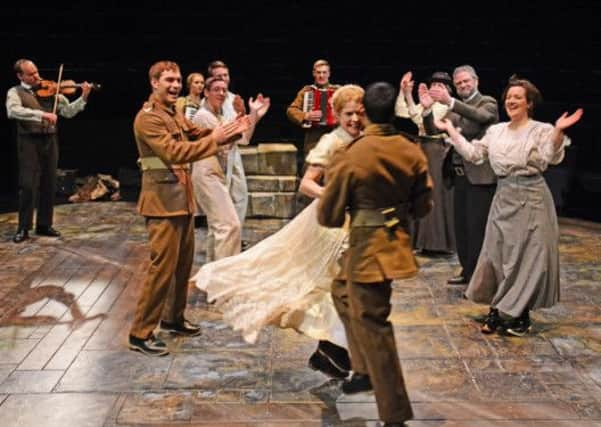Theatre interview: An August Bank Holiday Lark, West Yorkshire Playhouse


It was a very loose brief. Barrie Rutter, Northern Broadsides’ artistic director wanted a play called An August Bank Holiday Lark. It was a title that had been with him for a long time and he simply gave me the title, taken from a Philip Larkin poem and he wanted a play set around the First World War, in 1914, and he wanted folk dancing. So it was quite a brief.
How did you start?
I went away, did my research and it came together really well. I found out about Wakes Week, which happened around the August Bank Holiday. Around the turn of the century it was the start of working class leisure time and people started going off for the week to places like Blackpool, but before that people would stay in their villages, and fayres and markets would come to town for the week. It was also the start of harvest time and the tradition of bringing in rushes to lay on the floors of the churches over the winter to keep them warm and dry. It was a job that used to be done by the women, but in more hilly areas, like around Lancashire and some parts of Yorkshire the men started doing it and using carts and, well, once you get men and machinery involved it became like Top Gear.
Advertisement
Hide AdAdvertisement
Hide AdSo having found this tradition, you had something that would work set around a Bank Holiday?
It was perfect. Then there is the story of the tradition of morris and clog dancing that died because there were whole troupes of dancers who went to war and never came back.
I set the play in a town in the North, halfway up a hill, and when the war comes along a number of young men have to go. Given that the play is set in 1914 and we’re doing it in the centenary of the war, obviously it has to recognise that. While I was doing my research I found there was an untold story about The Lancashire regiments that were on the Eastern Front. There were quite a lot of them at Gallipoli and this fitted perfectly. I wanted to keep it tight within a year and the Gallipoli campaign fit in very well.
Everyone associates that with the Anzacs, but there were also Lancashire Fusiliers there and there were heavy losses on that day. I start with August 1, 1914 and the rush cart being built, family feuds, love affairs, all that sort of thing. We then move to the following August in 1915 and the village is dealing with having suffered those losses in the war.
So what do you hope from the play?
Advertisement
Hide AdAdvertisement
Hide AdI don’t want something that says it’s all grim up North, then everyone went to war and they died. There is something joyful about the people. It’s not just relentlessly awful and I hope there’s some good jokes and a warmth and humanity.
At the West Yorkshire Playhouse, April 8-19.